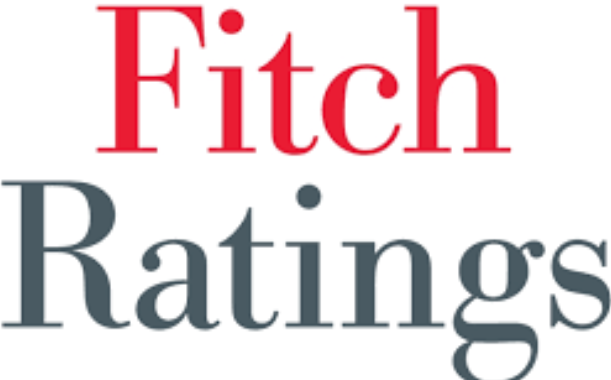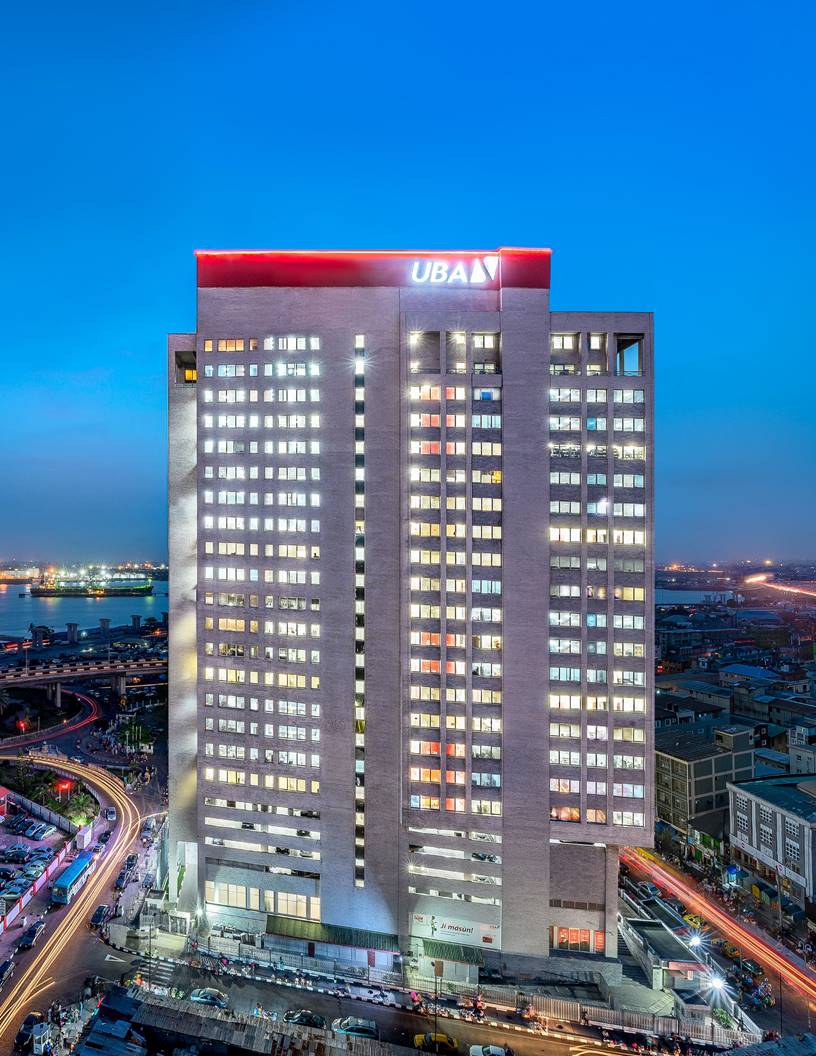E-Financial
Fitch Assigns Insurance Underwriter, Allstate A+Rating

Fitch Ratings has affirmed The Allstate Corporation’s core property/casualty insurance subsidiaries’ Insurer Financial Strength (IFS) ratings at ‘A+’ (Strong).

Fitch has also affirmed the ratings of American Heritage Life Insurance Company (AHLIC). The Rating Outlooks are Stable. Fitch also maintains the Negative Watch on Allstate Life Insurance Company (ALIC), and the Evolving Watch for Allstate Life Insurance Company of NY (ALICNY).
The affirmation of Allstate’s property and casualty subsidiary ratings reflects its very favorable business profile with market-leading underwriting expertise and significant operating scale, strong risk-based capital position and very strong financial performance with consistently favorable underwriting margins and operating returns, offset by its higher than peer average allocation to risky investment assets.
Allstate completed the acquisition of National General Holdings Corp., unrated by Fitch, a provider of property liability and accident and health products through independent agents in 1Q21.
If Allstate is able to successfully integrate the strong underwriting that comes with National General’s business, Fitch would expect to have a more positive view of Allstate’s business profile and ability to sustain or improve on its historically strong financial performance.
ALIC’s, and its ALICNY subsidiary’s, ratings are based on Fitch’s view of their standalone profile and strategic importance of “Limited Importance” following the announcement that Allstate has reached a deal to sell ALIC and is exploring its options for exiting the business in ALICNY.
The Rating Watch Negative on ALIC reflects the uncertainty of future capitalization and investment profile as a run-off operation under the ownership of Blackstone entities. The Rating Watch Evolving on ALICNY reflects the uncertainty of its future ownership.
Allstate is one of the strongest underwriters among major property/casualty companies with a history of favorable underwriting margins and stability. Allstate’s financial performance was very strong in 2020, with a GAAP combined ratio of 87.6% and a return on equity of 21.0%.
Allstate’s 2021 auto results will likely benefit from continued pandemic-related lower claims frequency, as the recovery in economic activity slowly unfolds. Offsetting strong underlying financial performance, the company is expected to incur a substantial charge on a GAAP basis, which will pressure Q121 and full-year 2021 earnings.
Allstate’s 2019 score on Fitch Ratings’ Prism capital model improved to ‘Very Strong’, driven by 13% growth in statutory surplus, reflected in a higher level of available capital. Operating company risk-adjusted capitalization would materially benefit if parent holding company liquid investments were included in the calculation.
The sale of ALIC will provide Allstate the opportunity to redeploy capital; however, Fitch expects growth in statutory capital in 2021 to be limited by the sale of ALIC.
Exposure to risky assets in support of P/C operations, is expected to be higher than peer companies, as the company continues to increase performance-based investments, consistent with the company’s strategy, to have a greater proportion of return derived from idiosyncratic asset or operating performance.
However, on a GAAP basis, risky asset ratios are expected to decline post-close. On a consolidated basis, Allstate’s risky asset ratio was approximately 84% of common equity at YE 2020, down from 109% at YE 2019, which is higher than Fitch’s guideline for the current rating category.
E-Financial
UBA Announces Successful Completion of System Upgrade

United Bank for Africa (UBA) has successfully completed its much-anticipated system upgrade, restoring all banking services to normalcy.

In a message to customers, UBA reassured customers that they could now log in to the mobile app and enjoy a smoother, more efficient banking experience.
The bank acknowledged any inconvenience caused by the process and reaffirmed its commitment to providing top-tier financial services.
“We are pleased to inform you that our mobile app upgrade has been completed, and all services have been fully restored. You can now log in and enjoy a smoother banking experience and improved services,” UBA announced.
While the upgrade promises enhanced functionality and reliability, UBA urged customers experiencing any lingering issues to reach out to its 24-hour Customer Fulfilment Centre via 02012808822 or email [email protected] for prompt assistance.
With the completion of the process, UBA reassured its customers of its dedication to innovation and excellence in banking.
E-Financial
SERAP Gives CBN 48-Hour Ultimatum to Withdraw ATM Fee Hike

Socio-Economic Rights and Accountability Project (SERAP) has called on the Central Bank of Nigeria (CBN) to immediately revoke its recent increase in Automated Teller Machine (ATM) transaction fees, describing the move as “Patently unlawful, unfair, unreasonable, and unjust.”

In an open letter addressed to Olayemi Cardoso, governor, CBN, and dated February 15, 2025, SERAP warned that the fee hike would worsen economic hardship for millions of Nigerians, particularly those at the lower end of the financial spectrum.
The rights group gave the apex bank a 48-hour deadline to reverse the policy or face legal action.
The CBN’s new directive mandated that ATM withdrawals at off-site locations, such as shopping malls, airports, and standalone cash points, will attract an N100 charge per N20,000 withdrawal.
Additionally, a surcharge of up to N500 may apply for transactions conducted at certain locations. The new fees are set to take effect from March 1, 2025.
In its letter, signed by Kolawole Oluwadare, deputy director, SRERAP criticized the policy, arguing that it would disproportionately affect struggling Nigerians while benefiting commercial banks.
“The manifestly unfair increase in ATM transaction fees will hit hardest those at the bottom of the economy and exacerbate the growing poverty in the country,” SERAP stated.
The organization further argued that financial institutions should bear the cost of banking operations, rather than shifting the burden onto customers, particularly those with limited financial means.
SERAP accused the CBN of prioritizing the interests of banks over the welfare of ordinary Nigerians, many of whom already struggle with the high cost of living.
The group pointed out that banks continue to report record-breaking profits while imposing excessive charges on customers.
“CBN policies should not be skewed against poor Nigerians and heavily in favour of banks that continue to declare trillions of naira in profits, mostly at the expense of their customers.
“The increase in ATM transaction fees will inflict misery on Nigerians and contribute to human rights abuses,” the letter read.
SERAP also noted that the policy contradicts President Bola Tinubu’s commitment to tackling poverty in Nigeria.
The rights group argued that the CBN’s action violates multiple legal provisions, including the Nigerian Constitution, the CBN Act, and the Federal Competition and Consumer Protection Act.
SERAP highlighted specific sections of these laws that prohibit unfair business practices and protect consumers from exploitative charges.
According to SERAP, the increase in ATM fees discriminates against low-income Nigerians who may struggle to afford the higher fees, creates a two-tiered financial system that favours the wealthy, contradicts the CBN’s stated mission to promote national economic well-being, and violates international human rights obligations under the United Nations Guiding Principles on Business and Human Rights,
“The CBN has responsibilities under the UNGPs to take effective steps to avoid or mitigate potential human rights harm and to consider ending any charges or transaction fees where severe negative human rights consequences cannot be avoided or mitigated,” SERAP asserted.
“We would be grateful if the recommended measures are taken within 48 hours of the receipt and/or publication of this letter.
“If we have not heard from you by then, SERAP shall take all appropriate legal actions to compel you and the CBN to comply with our request in the public interest,” the letter warned.
E-Financial
FG Seeks Fresh $300m Loan from World Bank for Health Security

Federal government has engaged the World Bank for a fresh $300m loan to strengthen Nigeria’s health security infrastructure.

Information obtained from the World Bank showed that the loan, which is under consideration, will be implemented by the Nigeria Centre for Disease Control (NCDC) with the Federal Ministry of Finance acting as borrower on behalf of the Federal Government.
According to information on the World Bank website, the loan project is expected to “increase regional collaboration and health system capacities to prevent, detect, and respond to health emergencies in the Federal Republic of Nigeria.”
The project is currently in the pipeline stage, with the disclosure date scheduled for February 6, 2025.
The World Bank board is expected to give its approval on July 30, 2025, following necessary assessments. The appraisal is set for April 14, 2025, and implementation will commence in the 2026 fiscal year.
According to a document on the concept of environmental and social review, the Nigeria Health Security Programme aligns with broader government efforts to enhance disease surveillance, diagnostic capabilities, emergency response, and laboratory networks across the 36 states and the Federal Capital Territory.
The programme’s primary objective is to enhance regional collaboration and strengthen Nigeria’s health systems to deal with emergencies. It falls within the World Bank’s investment in health, nutrition, and population sectors across Western and Central Africa.
According to the Environmental and Social Review Summary of the project, HeSP will expand molecular laboratory capacity, upgrade primary healthcare centres, establish emergency operation centres, and construct warehouses.
It will also deploy mobile laboratories and install water, sanitation, and hygiene facilities alongside solar energy systems to support health infrastructure improvements.
Although the total project cost is yet to be determined, the World Bank has committed $300m to the initiative. The funds aim to bolster Nigeria’s pandemic preparedness and improve response mechanisms for public health threats.
The initiative comes as Nigeria strengthens its public health infrastructure following lessons from previous outbreaks, including COVID-19.
If approved, the loan will support the NCDC in improving disease surveillance, diagnostics, emergency response, and laboratory services.
Nigeria has previously secured funding from international financial institutions to boost healthcare resilience, including financing for vaccine procurement, emergency medical services, and infrastructure development.
However, the project, categorised as a high-priority public health intervention, carries substantial environmental and social risks due to potential health, safety, and ecological concerns associated with infrastructure expansion.
Identified risks include increased medical waste, occupational hazards, and heightened energy and water demands.
Social risks range from potential grievances from stakeholders to concerns over land acquisition and implementing health interventions in conflict-prone areas.

 E-Financial2 days ago
E-Financial2 days agoSERAP Gives CBN 48-Hour Ultimatum to Withdraw ATM Fee Hike

 E-Financial2 days ago
E-Financial2 days agoFG Seeks Fresh $300m Loan from World Bank for Health Security

 General News2 days ago
General News2 days agoFG Drops Merger of NCAA, NAMA

 News2 days ago
News2 days agoBinance Chief Insists Some FG Officials, Reps Demand $150m Bribe

 News2 days ago
News2 days agoinDrive Unveils Cashless Bank Transfer Feature in Nigeria

 E-Financial2 days ago
E-Financial2 days agoCardinalStone Acquires Radix Pension Managers

 Telecom2 days ago
Telecom2 days agoNITDA Pledges to Foster Innovation with Cloud Infrastructure and AI Applications

 Telecom15 hours ago
Telecom15 hours agoToriola, MTN Nigeria CEO again Defends Tariff Hikes amidst Backlash


























